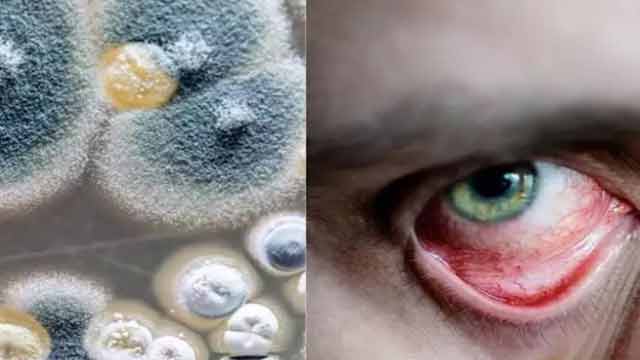Bangladesh has reported case of mucormycosis or black fungus involving a recovered Covid-19 patient.
According to the Birdem General Hospital in Dhaka, the person was diagnosed with mucormycosis while undergoing medical tests in this month.
“The patient was earlier diagnosed with coronavirus in Khulna,” media reports quoted the hospital’s Director General MKI Quayyum Choudhury.
The patient was admitted to the hospital on May 17 with fever, cough, and other post Covid-19 symptoms, Nazmul Islam, a director of the Birdem Hospital, told an English daily.
A senior official of the government’s disease control agency said that two cases were found.
“The hospital authorities are yet to inform us officially,” Tahmina Shirin, director of Institute of Epidemiology, Disease Control and Research (IEDCR), told the daily Prothom Alo.
Citing hospital officials, the Bangla daily said that the two patients, who recovered from Covid-19, were undergoing treatment at the Birdem Hospital.
One of the patients was detected with black fungus on May 8 while the other on May 23, it said.
Black fungus, also known as mucormycosis, is normally a rare infection which has a mortality rate of 50%.
In recent months, thousands of cases involving recovered and recovering Covid-19 patients have been recorded in India.
According to doctors there is a link with the steroids used to treat Covid-19 while diabetics are at particular risk.
The fungus seems to strike 12 to 18 days after recovery from Covid-19.
What is mucormycosis?
Mucormycosis is a relatively uncommon infection. Mucor mould, which is commonly found in dirt, seeds, manure, and rotting fruits and vegetables, causes it.
It is ubiquitous and found in soil and air and even in the nose and mucus of healthy people.
It affects the sinuses, the brain, and the lungs, and it can be fatal in diabetics or people who are seriously immune-compromised, such as cancer patients or people with HIV-Aids.
mj/





